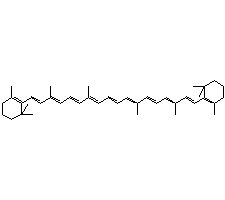Living Food for Health
by Dr. Gillian McKeith
Published by Basic Health Publications, Inc. 8200 Boulevard East, North Bergen, New Jersey 07047 USA, 201-868-8336
Softcover, c.2005, $12.95 US, $20.95 Can. 188 pp.
This clinical nutritionist healed herself of severe Candida albicans, using "live" foods--uncooked and full of enzymes. The 12 specific foods are: Sprouted Millet, Sprouted Quinoa, Alfalfa, Aloe vera, Green barley grass. Flax seeds, Parsley, Dulse, Nori, Stevia, Sunflower (seeds), and Wild blue-green algae. These were included in her diet every day, although they are not the only superfoods recommended in Living Food for Health. The author feels these specific 12 foods were responsible for regaining her health.
[ILLUSTRATION OMITTED]
The Western diet has become almost devoid of enzymes as they occur in raw foods--especially in sprouts. The author says "I have found that low enzyme activity is perhaps the most prevalent problem among modern Western people today. A fast-track, upwardly mobile life, accompanied by "fast" food, has translated into a population that is virtually devoid of digestive enzymes."
Enzymes are essential for digesting food, extracting nutrients from the food, dissolving fat, reproduction, and scavenging free radicals. Most people are also deficient in one or more minerals and the superfoods are especially high in micro-minerals, as well. Living foods may contain on average 85% more bioavailable nutrient value, compared to cooked foods.
The most nutrient-packed of the superfoods are the sprouts--the seeds of legumes or grains that have been germinated into baby plants within three to five days. Specifically, sprouts contain a high concentrate of antioxidant nutrients such as vitamins A, C, E, and B. Sprouts also contain all the trace minerals, including much needed selenium and zinc, plus bioflavonoids, superoxide dismutase (SOD), as well as chlorophyll and fiber. No wonder health gurus have been promoting these powerhouses for decades! There are anecdotal reports of raw food diets with sprouts reversing cancer.
The following are very brief notes--the author provides extensive information on the nutritional contents of these foods, as well as relevant research and health benefits.
Millet is high in iron, magnesium, potassium, silicon, the B vitamins and vitamin E. Quinoa is a more usable protein than meat, containing all the essential amino acids, and a rich source of minerals including more usable calcium than milk.
Alfalfa is known in the naturopathic community as a terrific tonic, highest in natural digestive enzymes and bioflavonoids, as well as most vitamins, minerals, amino acids, and four times more vitamin C than most citrus fruit.
Aloe vera is a powerful medicinal plant known for its ability to strengthen and heal tissues. Aloe vera is anti-inflammatory, anti-bacterial, immune-stimulating, and repairs damaged tissue. It assists digestion, reduces inflammations, and nurtures that important organ, the liver.
Green barley grass is extraordinarily high in the antioxidant superoxide dismutase (SOD), and has as much protein as meat. Its many benefits include protection against pollutants, and other toxins, stimulating the liver, nourishing cell tissues, and contains unique digestive enzymes.
Next in line is flax with its high fatty acid content--higher than the omegas in fish. These essential fatty acids are important for brain function and clinical research has found that some 26 different diseases may be helped by omega-3 EFAs.
Parsley, that ubiquitous sprig of green so loved by chefs, turns out to be a nutrient powerhouse, with high levels of betacarotene, vitamin B12, chlorophyll, calcium, more vitamin C than citrus fruit, and just about all other known nutrients. So don't just look at it on the plate--eat your parsley!
The sea vegetables or seaweeds, Nori and Dulse, provide the highest digestible source of all minerals, those very scarce nutrients in the Western diet. Sea vegetables also alkalinize the blood, and remove toxic metals, another important benefit. Sea vegetables have been shown to markedly reduce cholesterol levels.
Stevia, known as a natural sweetener--a substitute for sugar--has many other benefits not widely known. Not only does Stevia regulate and balance blood sugar levels, it also suppresses cravings for sweets and controls appetite. The sugar industry, alas, does not give up their turf easily, and the public is kept in the dark about this nutrient--ergo our high rates of insulin dysfunction and diabetes.
Sunflower (seeds) was a surprise inclusion--called an "energy pick-me-up" due to its nourishing of the digestive organs, the spleen, and the enzyme-producing pancreas, as well as B vitamins and essential fatty acids. A perfect "snack."
Last of the author's superfoods, wild blue-green algae, has been getting more clinical attention lately, and with good reason. It is particularly beneficial for people who aren't absorbing nutrients properly. Algae has a greater than 90% assimilation rate. The Klamath Lake, Oregon product is recommended.
I am always interested in what I call "medicinal foods." Anything I can incorporate into my diet as food rather than relying solely on pills, is preferred. Our modern era of highly processed and prepared foods is particularly lacking in enzymes (we spend millions on digestive aids). The author does not advocate an all-raw diet, but does propose including more raw live foods in our daily diet. Sprouts are easy once you learn the simple steps, and most of the other superfoods are easy to incorporate into one's diet. We need to relearn these simple food preparations that nourish our health, rather than depending on "ready-to-eat" dead food.
review by Irene Alleger
COPYRIGHT 2005 The Townsend Letter Group
COPYRIGHT 2005 Gale Group



